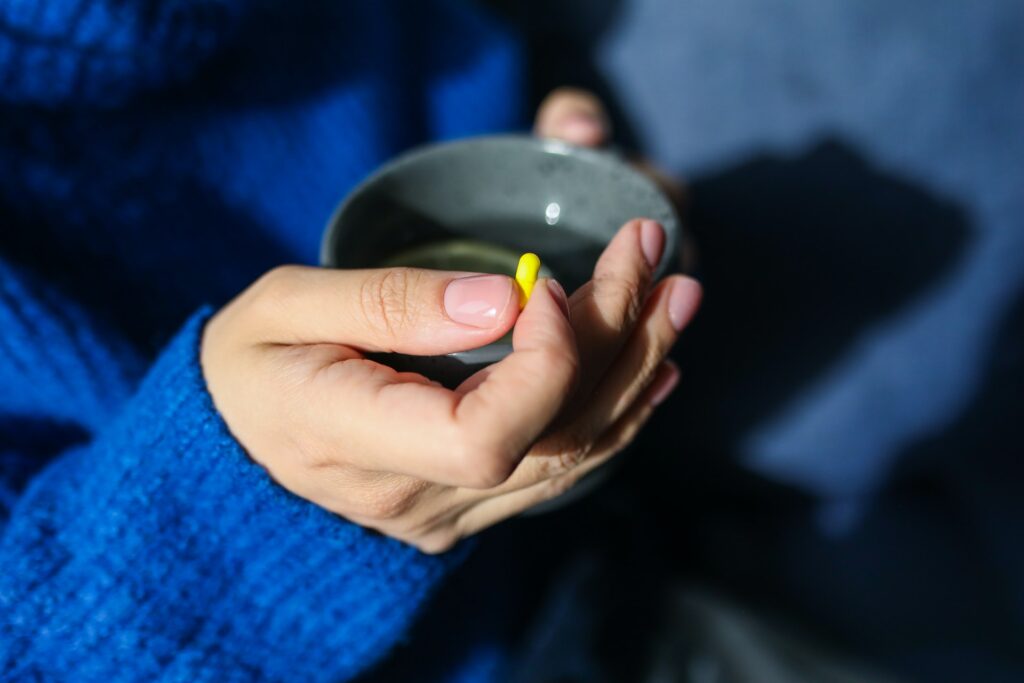Drug and Alcohol Rehab in Portsmouth
Quick Links for help with addiction in Portsmouth
- How Does Drug & Alcohol Rehab in Portsmouth Work?
- How can residential drug & alcohol rehab in Portsmouth help?
- Therapy for an Alcohol & Drug Addiction in Portsmouth
- Medical Alcohol & Drug Detox in Portsmouth
- FAQs about Rehab in Portsmouth
- Support Through Rehab Recovery in Portsmouth
We all know that drug and alcohol addiction [1] and abuse is a growing problem.
In order to understand drug and alcohol addiction issues in your area, it is important to start with the facts, and that includes looking at the statistics.
Drug addiction in Portsmouth is a growing issue. In fact, approximately 12,000 people living in Portsmouth frequently use and abuse a range of illegal drugs, including cannabis, cocaine and heroin.
However, studies have also shown [2] that there are now more cocaine and crack cocaine users in Portsmouth than any other type of drug abuser, which will doubtlessly lead to a sharp increase in the rates of cocaine addiction sufferers, and possibly lead to a higher rate of cocaine dependence.
Between 2019 and 2020, approximately 105 people living in Portsmouth who sought help for an addiction issue were parents who were still currently living with their children.

Due to this, Public Health England [3] has carried out numerous studies into drug addiction treatment [4] in Portsmouth. They found that for every pound spent on young people’s drug addiction treatment in Portsmouth, the lifetime benefit equates to somewhere between £5 and £8.
They also found that for every pound spent on drug addiction services for adults, it saved the NHS [5] and emergency services £2.50 in the future.
More people than ever are currently seeking help for drug addiction treatment in Portsmouth, and Portsmouth has also recently seen a huge rise in children under the age of 16 accessing treatment for a substance use disorder.
When it comes to opiate and crack addiction in Portsmouth, approximately 50% of users are currently engaging in treatment for their addiction. This mirrors national rates for opiate users seeking treatment.
The average age for people seeking treatment for drug addiction is somewhere between 35 and 39 years old. This could mean a number of things, including potential barriers for young people when it comes to them seeking and accessing treatment.
Unfortunately, lots of young people living in Portsmouth are abusing cannabis on a regular basis. In fact, one recent study found that nearly 5% of all 15-year-olds living in Portsmouth had abused cannabis in the last 30 days, a dangerous statistic that could very well lead to widespread cannabis use disorder.
For more information about drug and alcohol rehab in Portsmouth, please contact us today on 0800 088 66 86
Alcohol Addiction Statistics in Portsmouth
The latest study [6] carried out by the Portsmouth City Council found that there are now approximately 40,000 people in Portsmouth who abuse alcohol [7] on a regular basis.
The study also revealed that approximately 7,000 of these individuals are physically addicted and dependent on alcohol, and approximately 4,000 are admitted to the hospital each year with an alcohol-related issue.
This is deeply concerning, particularly when one considers the significant impact alcohol dependence can have on life expectancy. [8]
Unfortunately, alcohol abuse is closely linked to violence, anti-social behaviour, neglect and crime. When it comes to Portsmouth, alcohol is present in 50% of all violent crime reports in the area.
Admission is the first step to recovery [10], and there are many different organisations ready and waiting to help you start your journey towards sobriety today.
Below, we provide some statistics about alcohol and drug use in Portsmouth:
| Drug and Alcohol Statistics in Portsmouth (2016-2021) | Data |
| People in Portsmouth who abuse alcohol regularly | 40,000 |
| Individuals in Portsmouth who are physically addicted and dependent on alcohol | 7,000 |
| People in Portsmouth who are admitted to the hospital each year with an alcohol-related issue | 4,000 |
| People living in Portsmouth frequently use and abuse a range of illegal drugs | 12,000 |
You can talk to your local GP or to a member of the Rehab Recovery team on 0800 088 66 86 for help and support
How Can Drug & Alcohol Addiction Develop?

There are numerous ways a drug or alcohol addiction can develop. Unfortunately, due to the media, there are lots of stigmas attached to addiction issues.
However, even the smallest event can trigger an addiction issue, such as an argument or the breakdown of a relationship.
Despite what the media might make you believe, anyone can develop an addiction to drugs or alcohol, whatever their age [11] and whatever their background. This is because there are hundreds of things [12] that can trigger an addiction issue in someone, which can be incredibly hard to avoid, control and overcome.
For example, chronic stress can lead someone to become addicted to drugs or alcohol, as can traumatic events such as domestic violence and assault.
Other people can also become addicted to drugs or alcohol because they have been exposed to them as a child. If your parents abuse drugs or alcohol, then you are sadly more likely to also become addicted to the same substances in the future. Genetics [13] can also have a significant role to play here.
Peer pressure [14] is also a huge contributing factor to addiction issues. This is particularly hard to avoid when you are young and surrounded by other people who are also abusing drugs and alcohol.
You are also unfortunately more likely to develop an addiction to drugs or alcohol if you suffer from a mental health condition. If you suffer from mental health issues such as depression, anxiety, bipolar disorder or schizophrenia then you are a lot more likely to go on to abuse drugs or alcohol as a way of escaping your pain and reality.
These processes and pressures also largely apply to process and behavioural addictions such as gambling addiction, sex addiction, shopping addiction and others.
Whatever your reasons for becoming addicted to drugs or alcohol, it is important to accept that you are addicted and that you will need medical intervention in order to fully recover. [15]
For more information about drug and alcohol rehab in Portsmouth, please contact us today on 0800 088 66 86
When A Professional Intervention Is Needed

Spotting the signs of addiction [16] in a loved one can often prompt you to want to help them see the extent of their own problem.
When an addicted individual does not see the need to seek treatment, their family and friends can host an intervention.
Interventions are intense things to organise and execute – a positive tone is required, as is unanimity and preparedness from everyone involved.
One should always follow a clearly structured plan [17] to ensure that the intervention stays on-track and is effective.
As a result of this, the services of a professional interventionist can be sought out.
These are experts who know exactly how to organise an effective event.
They can help with deciding who to invite, ensuring everyone is prepared and maintaining the right tone throughout the intervention.
The CRAFT Approach To Intervention in Portsmouth
CRAFT interventions [18] differ from their conventional counterparts in that they do not involve a single event.
Instead, they see family and friends working together for the long-term goal of changing an individual’s behaviour for the better.
With CRAFT, a reward system is devised with the aim of promoting healthier behaviours [19] and getting rid of addictive tendencies.
Family and friends work unanimously to change the associations an individual’s brain has made with addiction.
The objective is to help them see that sober living is the more beneficial option.
In addition, it pushes individuals to a point where they are more receptive to the idea of getting professional treatment and support.
For some advice and guidance on conducting an intevention in preperation for addiction treatment in Portsmouth, call our team on 0800 088 66 86.
How Does Drug & Alcohol Rehab in Portsmouth Work?

If you want to be assessed for rehab treatment, then you will need to get in touch with either Rehab Recovery or directly with a rehab centre. Once you do so, you will be assessed for a number of drug addictions and mental health conditions. [20]
Once you have been assessed, your doctors and therapists will advise you on what to do next. They will inform you of what treatments [21] you will need to effectively recover and will explain how long it will take and how much it will cost.
If you opt for private drug and alcohol rehab in Portsmouth, then you will be seen within just a few days.
This means that you will be admitted to drug and alcohol rehab in Portsmouth, and will start your treatment immediately. At this point, you will move into the rehab facility where you will eat, sleep and receive extensive treatment [22] for the next few weeks.
Depending on how severe your addiction is, you will have to undergo a drug or alcohol detox before starting any other form of treatment. This will last anywhere between 7 – 10 days and will involve a number of unpleasant side effects and withdrawal symptoms.
Some of the most common drug and alcohol withdrawal symptoms include:
- Abdominal cramping
- Vomiting
- Headaches
- Fatigue
- Rapid heart rate and palpitations
- Delirium tremens
- Wernicke-Korsakoff Syndrome [23]
- Seizures
Physical issues [24] that are often present alongside addiction – and therefore must be considered during detox – include:
- Liver failure [25]
- Cirrhosis [26]
- Hepatitis
- Heart issues
- Blood pressure issues [27]
- Brain damage [28]
- Gastrointestinal issues
- Cancer [29]
- Organ damage [30]
- Deficiencies of various minerals (Calcium, iron, zinc, magnesium, etc.) [31]
If an individual gets the right help at the right time, these conditions can be properly managed and, in some cases, even reversed. [32]
A medically assisted detox is used to treat substance abuse problems where there is a physical dependency aspect, such as alcohol addiciton, heroin addiction, ketamine addiciton and benzodiazepine addiction. Often this will involve the use of drugs such as Librium, also known as Chlordiazepoxide, which is extremely effective at reducing the effects of alcohol withdrawal syndrome.
For heroin detox and recovery from other opioid use disorders, substances like methadone and buprenorphine are widely used for the same reasons, making heroin withdrawal a much safer process.
You could also be prescribed Acamprosate [33], Naltrexone [34], various anti-depressants [35] or anti-anxiety medications [36] and many other medicines depending on your specific need.
These medications help to ensure that the worst effects of withdrawal are kept at bay, making detox much safer and more effective than simply quitting cold turkey. [37]
Once you have completed your withdrawal and detox, you will then go on to receive a range of therapy treatments. This could include anything from cognitive behavioural therapy to motivational interviewing to holistic therapy and group therapy.
The purpose of these therapies is to help you achieve and maintain abstinence, teaching you how to break the habit of addiction [38] and avoid relapsing for the rest of your life.
Your detox and therapy will be led by a range of specialists, who will monitor you during your detox and provide you with the very best treatment plan on offer for you.
You will continue to receive therapy treatment for a number of weeks, months or even years if required.
This will all depend on how severe your addiction is, what substances you were addicted to and whether or not you suffer from a dual diagnosis.
Mental health disorders that are commonly linked to addiction [39] include:
- Schizophrenia
- Bipolar Disorder
- Eating disorders
- Depression
- Generalised Anxiety Disorder (GAD)
- Borderline Personality Disorder (BPD) [40]
- Antisocial Personality Disorder (APD) [41]
- Obsessive Compulsive Disorder (OCD)
- Attention Deficit Hyperactivity Disorder (ADHD)
- Post Traumatic Stress Disorder (PTSD)
- Codependency
A dual diagnosis of both addiction and mental illness is often provided on entry to a rehab clinic in Portsmouth, with some patients unaware of their existing mental health condition(s) and others fully aware, having intentionally used substances as a coping mechanism for those conditions.
Once you leave drug and alcohol rehab in Portsmouth, you will then work on relapse prevention. This will include a number of tips and tricks on how to stay sober [42] during day-to-day life, focusing on particular issues such as the desire to drink at night [43] or your own unique addiction triggers [44], helping to prevent you from relapsing in the future.
For more information about alcohol and drug rehab in Portsmouth, please contact us today on 0800 088 66 86
Why residential drug & alcohol rehab in Portsmouth isn’t suited to everyone
There are minimum requirements and certain criteria to meet to access residential rehab services.
Therefore, only those with addiction problems who fulfil the following criteria will be referred for this level of treatment:
- Those individuals experiencing suicidal thoughts.
- Anyone whose mental health issues make independent recovery impossible and continuing to abuse substances would further worsen this issue.
- In alcohol addiction, consumption of 25+ units per day.
- If Wernicke’s encephalopathy is present.
- If there have been multiple failed recovery attempts, either at home or with the assistance of local outpatient services.
- Those individuals that pose a risk to themselves or others (especially their immediate family or people that they live with) whilst intoxicated.
- Anyone who is experiencing Delirium tremens or alcoholic seizures.
The DSM-5 method of diagnosis [45] can be used to determine the severity of any form of a substance use disorder, dependent on the symptoms they are experiencing.
Those who exhibit 6 or more, therefore denoting a severe substance use disorder will be viable candidates for residential rehab.
Alcohol Use Disorders Identification Test (AUDIT) in Portsmouth

The AUDIT [46] (Alcohol Use Disorders Identification Test) was developed by the World Health Organisation.
This 10-question screening tool is used by medical professionals to detect the presence of alcohol use disorder, also known as alcohol addiction.
This can be a key step in noticing the difference between social drinking, binge drinking [47] and alcohol dependency, allowing you to follow the levels of involvement [48] in your own addiction.
The test can be done independently online or will be used by a specialist prior to rehab admission.
It asks 10 questions about alcohol use, for which a score of 0-4 is noted.
- If the individual has a score of 0-7 then they are considered to be at low risk of an alcohol use disorder.
- 8-15 shows an increased risk
- 16-19 is a high risk
- And scoring 20 or more indicates that the individual is likely to be dependent on alcohol.
Several other psychiatric assessments also exist to help determine an individual’s suitability for rehab, including the CAGE questionnaire [49] and the criteria of the American Society of Addiction Medicine (ASAM). [50] Together, these tests help both psychiatrists and addiction experts to determine the precise physical and psychiatric treatments that an individual needs to beat addiction.
It is worth noting, however, that many people will exhibit different symptoms [51] for the same addiction.
For example, a type one alcoholic [52] is likely to show signs of anxiety and low novelty-seeking behaviour, whilst a type two alcoholic [53] is far less likely to suffer from anxiety and engage in high novelty-seeking behaviour.
This can make it difficult to create a definitive list of signs and symptoms of addiction, however, some of the most common include:
- You hide your addiction and make excuses to drink or do drugs
- You have an urge to drink or do drugs whenever the effects wear off
- You have attempted to stop on your own but were unable to
- You have noticed a marked decrease in your ability to perform at work or school
- You notice relationship problems due to your addiction
- You neglect responsibilities in order to get high or drink
- You cannot control the amount or frequency of your habit
- You have developed health complications due to your addiction
Naturally, some individuals will also be more resilient to developing an addiction than others – whereas one person will drink a few times every week [54] and develop alcohol addiction, another may indulge every night [55] and avoid addiction.
Find out if a residential stay at a drug and alcohol rehab in Portsmouth is right for you by calling us today on 0800 088 66 86
How can residential drug & alcohol rehab in Portsmouth help?

Residential rehab has substantial benefits over outpatient and community treatment options. Whilst both are available in and around Portsmouth, residential rehab is highly recommended if it’s an option for you.
Major benefits of residential rehab
- Residential rehab offers an environment focused on recovery. Aside from the calming atmosphere, staying at a residential facility removes the potential to use substances, as well as any influences that exist in your daily life that could affect your choice to use drugs and alcohol.
- Highly trained medical staff are available 24 hours a day at residential treatment facilities. They can help you stay on track, as well as keep you safe from the effects of detoxing.
- Specialist doctors at a residential rehab facility create a bespoke rehab programme that is specific to your needs and experience of alcohol or drug addiction. It will address both the physical and psychological aspects of addiction, with the use of prescription drugs to help limit the effects of drug or alcohol withdrawal symptoms.
- Aftercare services are a huge benefit that most rehab centres offer, usually for 12-18 months post-treatment. This can be invaluable to those in recovery, as it helps them to maintain sobriety post-rehab. This can include ongoing treatments on an outpatient basis, access to organised peer support groups, or even temporary residence in a sober living house.
Gain the many benefits of drug and alcohol rehab in Portsmouth by giving our team a call today on 0800 088 66 86
Outpatient Drug & Alcohol Rehab in Portsmouth

If you opt for outpatient drug and alcohol rehab in Portsmouth then your rehab plan will look very different to this. With outpatient drug and alcohol rehab in Portsmouth, you will remain living at home for the duration of your treatment.
You will receive daily phone calls and any medication you might need through the post. You will also be given the chance to visit your local rehab facility on a daily or weekly basis to allow you the chance to receive any therapy or medication that you might need.
For more information about drug and alcohol rehab in Portsmouth, please contact us today on 0800 088 66 86
Therapy for an Alcohol & Drug Addiction in Portsmouth

Image above: Man in therapy at a drug and alcohol rehab in Portsmouth
There are lots of different therapy techniques used across drug and alcohol rehab in Portsmouth and across the rest of the UK.
Each therapy technique has its own benefits and objectives, so you might not be offered every single type of treatment available [56], but only the ones that would benefit you the most.
Commonly used therapy techniques at a rehab in Portsmouth
Below is a list of the most commonly used therapy techniques [57] in the UK, covering everything from physical activities to classic talking therapies, most of which are offered at all rehab centres in Portsmouth.
- Group Therapy and Group Psychotherapy
- Family Therapy
- Individual Therapy
- Codependency Treatment
- Cognitive Behavioural Therapy
- Brief Intervention
- Motivational Interviewing, Motivational Enhancement Therapy and other motivational therapies that help to build self-confidence [58]
- Eye Movement Desensitisation and Reprocessing
- TSF (Twelve-Step Facilitation Therapy)
- Dialectical Behavioural Therapy
- Acceptance and Commitment Therapy
- Contingency Management
- Rational Emotive Behaviour Therapy
- Holistic and alternative therapies (music therapy, art therapy, mindfulness, meditation, yoga, acupuncture, equine therapy, drama therapy, etc)
All of these therapies are backed with evidence and have met rigorous standards in order to be offered at rehab. For example, CBT in particular has an extremely high success rate [59], with noticeably low odds of relapse [60] for those who successfully complete a course.
However, some individuals – particularly those with learning disabilities or personality disorders [61] – may find it is less effective for them. This is why a wide variety of therapies and treatments are offered at rehab.
According to the National Institute on Drug Abuse [62], there are numerous principles to effective drug and alcohol therapy treatment.
These principles state that in order for a type of therapy treatment to be effective, it must qualify for a number of the below principles.
- It must be easily accessible
- It must be accepted that addiction is complex and a disease of the brain
- It must accept that no single treatment will cure individuals [63]
- It must address the individual as a holistic being, instead of just looking at their drug addiction and focusing on it
- It must last a number of weeks
- It must be accepted that, whilst therapy can be effective, medications are also sometimes required in order to help to treat an individual
- It must be reviewed on a regular basis
- It must address other mental health issues
- It must accept that detox is the only way to overcome physical dependence on an addictive substance
As you can see, there are a number of hoops that therapy techniques have to overcome in order to be considered effective therapy techniques.
If you think that you would benefit from undergoing therapy, then speak to our team at Rehab Recovery for advice and support
Medical Alcohol & Drug Detox in Portsmouth

As discussed above, the only way to overcome physical dependence and addiction is to go through a medically assisted detox.
The detox stage of the process is one of the most powerful and useful and is the part of the process which breaks the link between your physical dependence and your psychological addiction.
The reason why you need to detox within a rehab facility is that detoxing from a particularly addictive substance can result in a number of rather unpleasant and dangerous withdrawal symptoms and side effects.
By detoxing within a drug and alcohol rehab in Portsmouth, your withdrawal symptoms will be monitored around the clock by doctors and specialists.
You will also be provided with a range of medication if necessary, such as Librium. This will lessen your withdrawal symptoms and make your detox slightly more comfortable.
It is recommended that you withdraw from the addictive substance in stages so that you do not overwhelm your body or cause any serious medical issues.
If you are addicted to drugs or alcohol and think that you might need to undergo a detox in order to recover, then you should speak to someone in the Rehab Recovery team.
We are specialists in our field and will be able to provide you with all of the relevant information that you would need to make an informed decision.
Our advisers will never force you into making a decision. Instead, we simply provide you with all of the relevant information so that you can make the right decision for you, your health and your future.
For more information about drug and alcohol rehab in Portsmouth, please contact us today on 0800 088 66 86
FAQs about Rehab in Portsmouth

Image above: Woman in therapy at a rehab in Portsmouth
Below, we provide some answers to common questions about the drug and alcohol rehab process in Portsmouth:
How long is drug and alcohol rehab in Portsmouth?
Whilst full recovery from addiction can take anywhere from six months to five years [64], formal treatment will rarely last that long.
How long you have to stay in drug and alcohol rehab in Portsmouth depends on a few different things. For example, suffering from a particularly severe addiction that has lasted a long time [65] will add a few weeks or even sometimes months onto your stay in drug and alcohol rehab in Portsmouth.
Most people who attend drug and alcohol rehab in Portsmouth have to undergo a detox, which means that they have to stay in rehab for at least 10 days. Whilst this is enough time to overcome a detox, it is usually the least amount of time expected to stay in rehab.
The majority of people suffering from a moderate addiction to drugs or alcohol end up staying in drug and alcohol rehab in Portsmouth for a minimum of 28 days. This is usually enough time to complete a detox and a range of therapy techniques and sessions.
If you suffer from a severe addiction then you might have to stay in drug and alcohol rehab in Portsmouth for considerably longer. In fact, some people who suffer from a severe addiction to drugs or alcohol have to stay in drug and alcohol rehab in Portsmouth for as long as 90 days.
What is the cost of drug and alcohol rehab in Portsmouth?
Everyone knows that drug and alcohol rehab in Portsmouth can be very expensive. Staying in a private rehab centre for just 28 days could cost you anything between £2,000 and £6,000, depending on whether you want to stay in a shared or private room.
If you have to stay in rehab for any longer then you could end up paying up to £12,000 for your rehab treatment.
This does depend on a number of factors though, including the severity of your addiction and whether you require a medical detox or not.
Statutory-Funded Charities & Organisations in Portsmouth

Organisations such as the NHS and other charities can offer free or part-funded addiction treatment across the UK, including in Portsmouth.
These fantastic services open up recovery to those people who often need it most, allowing them the chance to take back control of their lives when they otherwise would have no way out of addiction.
Sadly, due to the high demand of support, the sheer cost [66] of treatment and the extensive budget cuts suffered by organisations like the NHS, these services are often overworked.
Long waiting lists [67] are the norm and treatment itself is often far less personalised and effective than private treatment.
Regardless, there are still many effective statutory addiction services available in Portsmouth. These include:
1. The Recovery Hub
Address: 44-46 Elm Grove, Southsea, Portsmouth, Southsea PO5 1JG
Telephone: 02392 294 573
Website: https://www.portsmouthrecovery.org/
2. Pushing Change
Address: 67 Kingston Road, Portsmouth PO2 7DX
Telephone: 02392 864 374
Website: https://pushingchange.org/
3. Portsmouth Support & Recovery Service – Solent Mind
Address: St Mary’s Hospital, Milton Rd, Portsmouth PO3 6DW
Telephone: 02382 027 810
Website: http://www.solentmind.org.uk/
Accessing local 12-Step programmes like Alcoholics Anonymous Portsmouth, Narcotics Anonymous Portsmouth, and Cocaine Anonymous can be a great way to connect with other people in recovery and motivate yourself to beat addiction by leaning on a higher power.
SMART Recovery Portsmouth can help you to manage triggers, understand your thoughts and feelings, maintain motivation [70] and stay sober through effective person-centred care.
Al-Anon and Alateen meetings are available for you and your friends or family members.
The NHS (National Health Service) are also there to help you, as are various NHS Foundation Trusts.
You can also reach out to a number of helplines, including Mind UK, YoungMinds, Rethink Mental Illness, Samaritans, National Institute for Health and Care Excellence (NICE), Change Grow Live, Turning Point, We Are With You and Papyrus.
Support Through Rehab Recovery in Portsmouth

When you contact Rehab Recovery, we’ll help you to understand the huge range of treatment options that are available to you in Portsmouth.
Rehab Recovery’s drug and alcohol rehab services are available in locations across Hampshire, such as Southsea, Gosport, Portchester, Hayling Island, Lee-on-Solent, Fareham, Havant, Southampton, Basingstoke, Eastleigh, Emsworth, Waterlooville, Over Wallop, Overton, Sandford, Sandleheath, Sarisbury, Sarisbury Green, Segensworth, West Ovington, Ower, Owslebury, Owslebury Bottom and many more towns and cities.
All of the rehabs we recommend are regulated by the Care Quality Commission [68] (England and Wales) or the Care Inspectorate [69] (Scotland).
If you or someone that you know is addicted to drugs and alcohol and needs help, please don’t hesitate to reach out.
We simply want to provide you with the relevant information, so that you can make an informed decision.
At Rehab Recovery, we offer free advice from a team of non-judgemental professionals, many of whom are in recovery and understand how hard it can be to change your relationship with addiction.
For more information about rehab in Portsmouth, simply reach out to our 24/7, confidential hotline on 0800 088 66 86
References
[1] https://nida.nih.gov/publications/drugs-brains-behavior-science-addiction/drug-misuse-addiction
[3] https://democracy.portsmouth.gov.uk/documents/s19021/Drug%20related%20harm%20report.pdf
[5] https://www.nhs.uk/Live-well/addiction-support/drug-addiction-getting-help/
[6] https://www.cpsc.org.uk/application/files/7415/7261/4390/Alcohol_brief_intervention_website.pdf
[7] https://www.cdc.gov/alcohol/onlinemedia/infographics/excessive-alcohol-use.html
[8] https://www.ncbi.nlm.nih.gov/pmc/articles/PMC4402015/
[10] https://www.mountsinai.org/health-library/selfcare-instructions/deciding-to-quit-drinking-alcohol
[11] https://www.niaaa.nih.gov/alcohols-effects-health/alcohol-topics/older-adults
[13] https://medlineplus.gov/ency/article/001522.htm
[14] https://nida.nih.gov/publications/drugfacts/understanding-drug-use-addiction
[15] https://nida.nih.gov/research-topics/recovery
[16] https://www.ihs.gov/asap/familyfriends/warningsignsdrug/
[17] https://www.ahrq.gov/prevention/guidelines/tobacco/5steps.html
[18] https://www.verywellmind.com/the-craft-approach-to-substance-abuse-intervention-5191125
[19] https://www.ncbi.nlm.nih.gov/pmc/articles/PMC3654310/
[20] https://www.niaaa.nih.gov/publications/brochures-and-fact-sheets/understanding-alcohol-use-disorder
[22] https://www.ncbi.nlm.nih.gov/pmc/articles/PMC4553654/
[23] https://premierneurologycenter.com/blog/neurologic-diseases-associated-with-alcohol-consumption/
[24] https://www.cdc.gov/alcohol/fact-sheets/alcohol-use.htm
[25] https://www.ncbi.nlm.nih.gov/pmc/articles/PMC3321494/
[26] https://www.cdc.gov/alcohol/fact-sheets/womens-health.htm
[27] https://www.cdc.gov/alcohol/fact-sheets/alcohol-use.htm
[28] https://www.niaaa.nih.gov/publications/alcohol-and-brain-overview
[29] https://www.apa.org/topics/substance-use-abuse-addiction/alcohol-disorders
[30] https://www.niaaa.nih.gov/alcohols-effects-health/alcohols-effects-body
[31] https://pubs.niaaa.nih.gov/publications/aa22.htm
[33] https://effectivehealthcare.ahrq.gov/products/alcohol-misuse-drug-therapy/consumer
[34] https://www.aafp.org/pubs/afp/issues/2016/0315/p457.html
[35] https://agapetc.com/what-is-the-best-antidepressant-for-an-alcoholic/
[36] https://www.ncbi.nlm.nih.gov/pmc/articles/PMC5614930/
[38] https://www.health.harvard.edu/staying-healthy/11-ways-to-curb-your-drinking
[39] https://pubs.niaaa.nih.gov/publications/aa63/aa63.htm
[40] https://iv.iiarjournals.org/content/24/5/761
[41] https://www.ncbi.nlm.nih.gov/pmc/articles/PMC6241194/
[42] https://www.newdirectionsforwomen.org/what-percentage-of-alcoholics-recover/
[44] https://drpeeke.com/2015/02/24/pillars-of-recovery-the-three-ms/
[45] https://cdn.website-editor.net/30f11123991548a0af708722d458e476/files/uploaded/DSM%2520V.pdf
[47] https://www.nhs.uk/live-well/alcohol-advice/the-risks-of-drinking-too-much/
[48] https://www.edu.gov.mb.ca/k12/cur/physhlth/frame_found_gr11/rm/module_e_lesson_2.pdf
[49] https://www.mdcalc.com/calc/1729/cage-questions-alcohol-use
[50] https://www.asam.org/asam-criteria/about-the-asam-criteria
[51] https://www.ihs.gov/asap/familyfriends/warningsignsdrug/
[52/53] https://www.ncbi.nlm.nih.gov/pmc/articles/PMC6876531/
[54] https://www.niaaa.nih.gov/alcohol-health/overview-alcohol-consumption/moderate-binge-drinking
[57] https://www.ncbi.nlm.nih.gov/pmc/articles/PMC5328289/
[59] https://gpsych.bmj.com/content/32/5/e100087
[60] https://pubmed.ncbi.nlm.nih.gov/32954958/
[61] https://www.ncbi.nlm.nih.gov/pmc/articles/PMC7001356/
[63] https://nida.nih.gov/publications/drugs-brains-behavior-science-addiction/treatment-recovery
[64] https://www.racnj.com/the-five-stages-of-addiction-recovery/
[65] https://www.niaaa.nih.gov/alcohol-health/overview-alcohol-consumption/moderate-binge-drinking
[69] https://www.careinspectorate.com/index.php/inspection-reports


